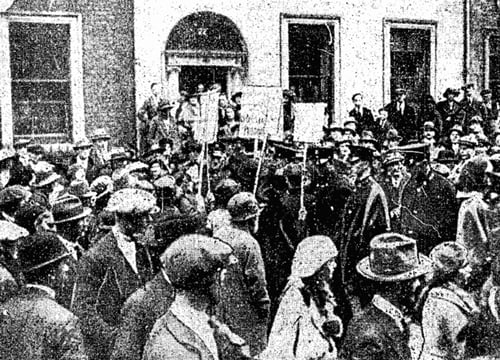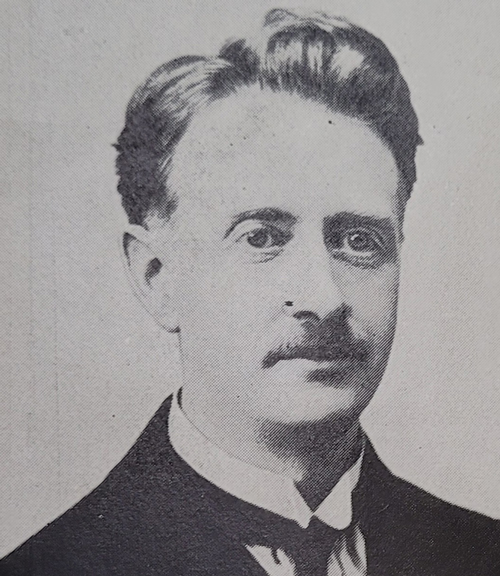Fourth Dáil re-elects Cosgrave as President as street protesters demand prisoner releases
Dublin, 20 September 1923 - Following several busy weeks of election campaigning, voting and counting, the new Dáil had a low-key opening at Leinster House yesterday where William T. Cosgrave was re-elected as President of the Executive Council.
Although the public galleries were packed, anti-Treaty Republican TDs were conspicuously absent from the chamber. Others also not in attendance included Prof. Eoin Mac Neill who was in Geneva; Seán MacCurtain, the Tipperary TD who is in prison in Scotland; and poll-topping Limerick TD, Dr. Richard Hayes.
Outside of Leinster House, however, there was a demonstration by a group of women waving placards and demanding the release of prisoners. In some instances, the women harangued deputies at the gates of Leinster House, on the Kildare Street side where a vestibule had been erected and through which the new deputies and others passed to gain entry.
The protestors were not for moving, and remained outside even as the business of the new Dáil was commencing. Among them were Mrs. Charlotte Despard and Madame Gonne McBride, who approached Leinster House from the direction of Moleseworth Street, along with supporters whose placards bore messages such as: ‘President de Valera sentenced to death in 1916, now in Mountjoy’; ‘600 prisoners hosed and beaten in Mountjoy’ and ‘11 elected TDs in Mountjoy.’

Protests at opening of New Dail (Image: Irish Independent, 20 September 1923)
A statement signed by eleven elected Anti-Treaty Republican members who are not in prison, has sought to bring the attention of the ‘civilised world’ to what they describe as the ‘illegal incarceration’ of their colleagues.
These TDs also endorsed statements issued by the Republican Publicity Department on the subject of the elections and the controversial oath of allegiance. The statement, signed by Mr. Patrick Ruttledge, deputising for Mr. de Valera, expressed that the most immediate barrier to unity, peace and stability was the Free State’s rigid insistence on the Oath of Allegiance to England.
The statement claims that the electorate had not given its overwhelming endorsement to a ‘blood and iron policy’ directed at brow-beating the ‘nation into the British Empire’ and there was no possibility of progress while the government ignores the ‘spirit which has withstood the onslaught of British guns and Imperial barbarities, of seductive bribes and flattering promises.’
For those who did attend - or were in a position to attend - the new Dáil, the first items of business on the agenda were to elect a Ceann Comhairle and President, where the only nominees were two men who held the same roles in the third Dáil.
As a result, Professor Michael Hayes resumes his role as Ceann Comhairle and William Cosgrave assumes the honour once again of being President of the Executive Council.
[Editor's note: This is an article from Century Ireland, a fortnightly online newspaper, written from the perspective of a journalist 100 years ago, based on news reports of the time.]





















